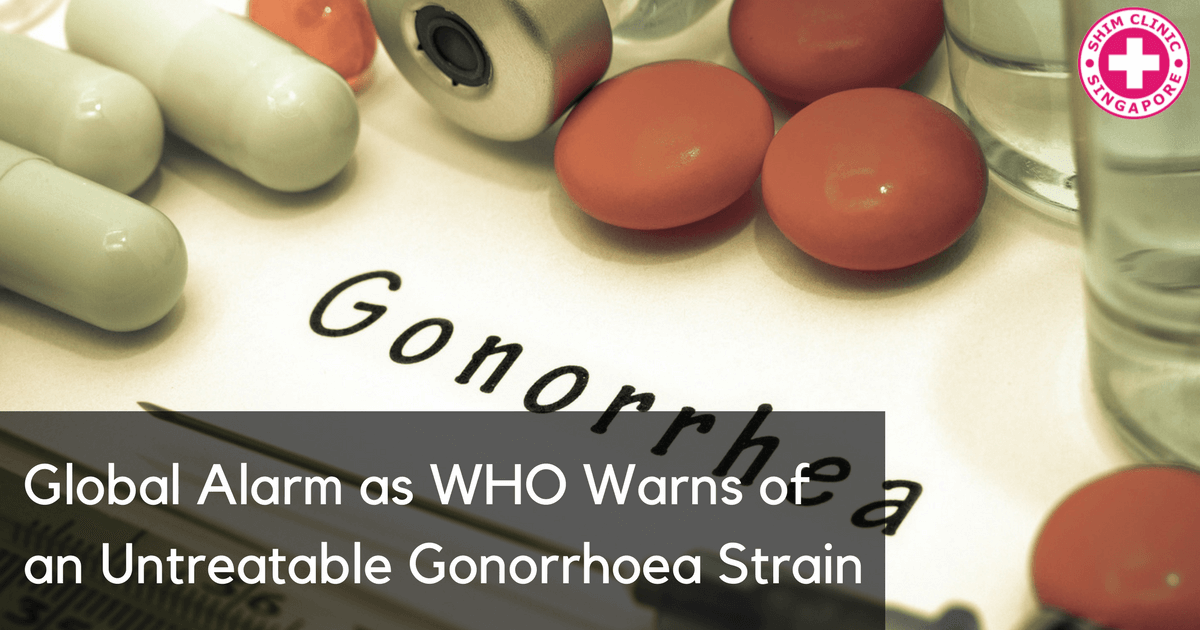A gonorrhea strain that is not responding to antibiotics is on a quick rise around the world. World Health Organization (WHO) warned that there has been three confirmed cases that did not respond to antibiotics raising fear that this new strain may soon not respond to last-resort antibiotics. The three cases were reported in Japan, France and Spain.
This news is worrisome as gonorrhea is currently reported to have the second highest cases after Chlamydia. About 78 million cases of gonorrhoea cases are reported worldwide every year. Most of these cases are reported among youths below 25 years of age.
Gonorrhoea is spread through unprotected sexual intercourse. Most patients will not show symptoms making diagnosis difficult. When left untreated, gonorrhoea can cause infertility, pelvic inflammation, throat infection, and risk of child blindness in pregnant women.
WHO based its reports from two studies done by WHO researchers. The studies involved data collected from 77 countries around the world.
Resistance Reported in 50 Countries
The study found that resistance to first-line drug ciprofloxacin had been increasing worldwide between 2009 and 2014. This resistance had also led to the STD resisting azithromycin, another antibiotic. The resistance also spread to extended-spectrum cephalosporins (ESCs), last-resort treatments that are the only antibiotics working to treat gonorrhoea in most countries.
However, ESCs have increasingly stopped working with resistance reported in 50 countries already. Experts feel that it’s only a matter of years that ESCs stop working completely.
Experts blame lack of proper gonorrhoea diagnosis for the increased resistance to antibiotics. For one, we don’t have an affordable, rapid diagnostic STD test for gonorrhoea. This means that a lot of people with the STD go undetected and untreated.
Secondly, when patients show symptoms of gonorrhoea when they go for STD testing, most doctors will prescribe antibiotics without confirming the results. These patients could be suffering from another STD, thus they develop increased resistance to antibiotics used to treat gonorrhoea and other bacterial diseases.
Need for New Prevention, Diagnosis and Treatment Methods
Marc Sprenger, WHO director of antimicrobial resistance says that it’s time we developed new methods to diagnose, prevent and treat gonorrhoea. There’s also need to track and report patterns of new infections, how antibiotics are used, any new cases of resistances as well as treatment failures.
Sprenger added that there was urgent need for a diagnostic method that can predict which antibiotics will work gonorrhoea as well as a gonorrhoea vaccine in the long term.
Other experts also insist on adding funding for sexual health services. Facilities for STD testing, diagnosis and treatment are especially inaccessible in most lower-income countries. Unfortunately this is where most cases of gonorrhoea are reported.
With more funding, more people will be able to go for testing, will be diagnosed correctly and given the correct medication. This will in turn help to reduce misuse of antibiotics and possibly help in reducing the resistance.
Experts are worried that those reported to have the strain resisting first-line antibiotics may spread it to others leading to increased risk of last-resort drugs resistance. They are calling for worldwide attention to this new strain in a bid to come up with an improved method of treatment and possibly a vaccine.


Pingback: HPV 101: The Essentials You Should Know